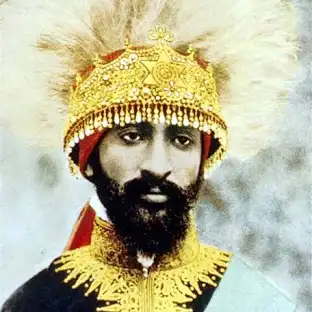The Rise of Rastafari

Leonard Percival Howell: The First Rasta
Jamaica’s first Rasta, Leonard Percival Howell, was born in 1898. He left Jamaica as a teenager to find work in the Americas. His most influential experience was in Harlem, New York, where he witnessed bigotry, racism, and social oppression firsthand.
Inspired by the Black civil rights movement and the teachings of Marcus Garvey and the United Negro Improvement Association (UNIA), Howell dedicated his life to fighting hatred, oppression, and injustice. He began preaching across America, and soon, world leaders invited him to share his message in their countries.

In 1929, Howell ran a “teahouse” where ganjah was smoked. He was deported from the US in 1932 and returned to Jamaica, preaching about Ras Tafari Makonnen (Haile Selassie I) as the Messiah returned to Earth. The timing coincided with Haile Selassie I’s coronation as Emperor of Ethiopia, reinforcing Howell’s message.
Howell was arrested and later released in 1936. Alexander Bustamante, a union organizer in 1939 wrote to the Governor: “Serious trouble is brewing…owing to a mischievousness of a man named Howell, leader of this terrible thing called ‘Rastafari’. It seems to me the only proper place for this man is in the asylum. He is the greatest danger today, and I believe the police can confirm.”
Undeterred, Howell established “Pinnacle” in 1940, a 500-acre community where 1,600 residents lived self-sufficiently. Pinnacle became a haven for Rastafari, attracting thousands seeking a new way of life.
Howell emphasized self-reliance and empowerment, which led to tensions with authorities and a split with Marcus Garvey, who advocated for a less confrontational approach. Around 1935, Howell published his doctrine in “The Promised Key” under the

pen name G.G. Maragh. This book outlined Howell’s unique blend of Rastafari beliefs, Old Testament teachings, and pan-Africanist ideals. It also touched upon controversial topics such as the illegitimacy of the British monarchy and the need for Black liberation. “The Promised Key” further escalated tensions with the authorities, who saw it as a threat to the established order.
In 1941, Howell was arrested for cultivating marijuana together with yam. He was sentenced to two years, and upon release, formed a group of guards, some of whom grew their hair long, becoming known as “Ethiopian warriors” or “locksmen.”
Howell rebuilt Pinnacle, teaching residents’ self-sufficiency, including an Ital diet, natural medicines, and herbal tonics. However, authorities invaded Pinnacle in 1954 and again in 1958, burning homes and destroying Howell’s writings and archives.
Despite these attempts to suppress Howell and his message, the Rastafari movement had taken root. Howell’s legacy as the first Rasta and his contribution to the development of Rastafari culture and philosophy, including his influential book “The Promised Key”, remain significant.

Hope Howell, Leonard and Marcus Garvey in USA

